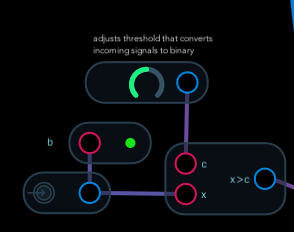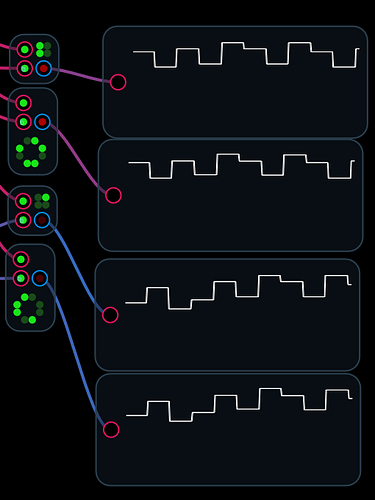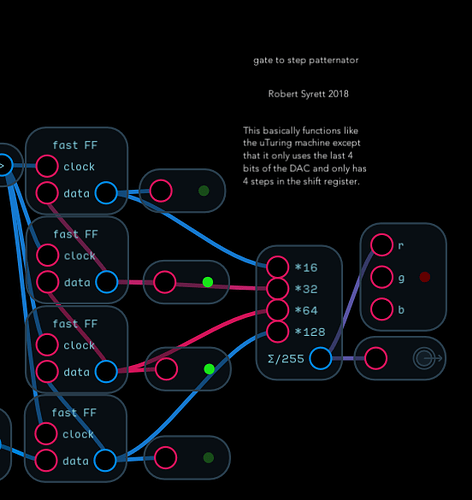#Gates To Steps
These are two modules are based on shift registers whose stages are being fed into a DAC. Two different signals of gates being fed into the modules’ inputs results in a stepped pattern that is unique to the inputs.
In other words, if you give it a clock and a rhythm you get a stepped pattern based on that rhythm. But you could also enter two rhythms of different length and produce a shifting pattern.

I have also added an internal trim pot to adjust the input controlling the bit’s state on the shift register’s data input so that continuous modulation or audio signals could be used as pseudo random signal sources.
I/O
| Input |
Signal Range |
Notes |
 |
0, 1 |
clock or trigger input |
 |
-1,1 |
gate or modulation input |
| Output |
Signal Range |
Notes |
 |
0, 1 |
Stepped signal output |
|
|
|
Controls
| Constant Node |
Function |
Notes |
 |
internal trim pot |
allows for fine tuning of modulation inputs for optimal response |
|
|
|
Displays
| Meter |
Displays |
Notes |
 |
displays what bits are active |
This is pretty much the only thing that is better about the 16-bit version of the module |
Version History
| Revision |
File |
Date |
Notes |
| 1 |
gate to step.audulus (54.0 KB) |
05/078/2018 |
This module is worth it just for the blinking lights, but is a great way to get an extra sequence out of another sequencer. |
Demos
| Revision |
File |
Date |
Notes |
| [Version] |
[Upload demo file here] |
[Month/Day/Year] |
[Optional notes] |
1 Like





